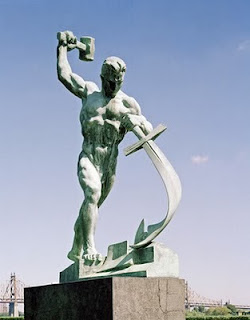People ask all the time what comics I read growing up, and I remember most comics I've read, and specifically eras of comics I enjoyed. But this period, from age 5 to age 22 was the period in which everything I read I seriously got a thrill out of.
((PLEASE CLICK UPON THE PICS TO MAKE THEM BIGGER))
1968 Brave and Bold, Spectre and Batman fighting in Chinatown... I was on the way home from the doctor with a bad bee sting, Mother knows best, so I got a comic to feel better.

1969 The Wacky Races, bought for a trip with my brother and father ice fishing. I didn't quite understand why people would stand outside in winter to catch fish, and, I still don't.

1970 Christmas shopping, I saw my hero Underdog at Daly News and Drug, and demanded it. I received it. And I got my order form into the Underdog fan club and got a ring and t-shirt of the great hero as well.

1971 Two week summer vacation at a cabin at Fish Lake. What do you do when you are hot and tired? Sit in the cool of the dark cabin and read comics. I still dig Valkyrie.

1972 March or so, brother and I woke up to learn that my mother was gone because my father had had a massive heart attack in Milwaukee while on a business trip. Fortunately for him, he had it next to a hospital, with a special cardiac care unit. We visited, I read Turok and was amazed.

1973 I had a broken leg. My wonderful brother bought me my first X-Men. And oh yes, IT WAS GOOD.

1974 Summer bus trip to Minneapolis with brother and mother. GI Combat was my ticket to excitement.

1975 Nearly every book I read was about World War II, so a comic based in that era with Submariner and Cap? OH HELL YES!

1976 The Justice Society became my favorite Superhero group ever, so a reprint with a complete story and another with Batman and Superman to boot? Oh yes very fun reading. My copy got hail damage walking home but I still enjoyed it.

1977 Master of Kung Fu was better than any Bruce Lee film, or James Bond film, it combined the two, with perfect art and kewl stories and writing. Issue 48 was brilliance. Truly. Cinematic, big, wild, and completely awesome.

1978 was a time when I was starting to follow talents as well as characters, and Jack Kirby was my hero creator. Devil Dinosaur is funky, silly even, but I enjoyed it. I was beginning to learn how different I was than most of my friends and all of my "enemies", comics became a refuge for me.

1979 Again, the JSA rules. I was now living in a new town, with new friends, but I still sought refuge in the super heroics.

1980 New Teen Titans prove to me that comics are for adults as well. This stuff was great. I was a sophomore in high school, my grades were bad, but I was making friends, and life started to improve.

1981 A 27 page story that brings to an end the first full cycle of stories of the Warlord. Mike Grell was great (is great) but had balls aplenty to take his story into new frontiers by putting a bullet in the noggin of one of his most important characters of the saga. Stunning.

1982 In May I graduated from high school and moved on to university. Alone, depressed, I returned to a friend, comics, only to find a brilliant cover by George Perez, with the poopy art of Don Heck inside of a Justice League of America.

1983 Roy Thomas and the JSA. My first year of university nearly ended with my suicide, I was lost and depressed, but, I still liked the good old comics.

1984 While I was a Legion of Superheroes fan I had great hopes in 1984 when the Legion got its prestige series. I was horrified and wounded when my favorite hero Karate Kid died in issue #4. Nonetheless, it was a good run. University studies and female studies interrupted my comic buying, but I still loved them.

1985 Jack Kirby returned to end the story of the New Gods, with a fabulous looking graphic novel. It was ok but there were issues with it. On the other hand, I had a girl friend of sorts, though we wouldn't date technically until 1986. Then we would marry in 1988 June.

 First the back story, Joe Monks is a horror writer who made a dark, scary ass film. While it is a horror movie, and it is a dark vision, it is not a vulgar work. More like a roller coaster with kick. But that isn’t the thing that people talk about. He wrote and directed a film. He also promoted it, and got funding and approaches a distribution deal. This isn’t a small work. But Joe Monks is blind. His horror works come from a great imagination, an incredible amount of work to overcome, and a vision that is dark, but not out of the blindness.
First the back story, Joe Monks is a horror writer who made a dark, scary ass film. While it is a horror movie, and it is a dark vision, it is not a vulgar work. More like a roller coaster with kick. But that isn’t the thing that people talk about. He wrote and directed a film. He also promoted it, and got funding and approaches a distribution deal. This isn’t a small work. But Joe Monks is blind. His horror works come from a great imagination, an incredible amount of work to overcome, and a vision that is dark, but not out of the blindness.











































